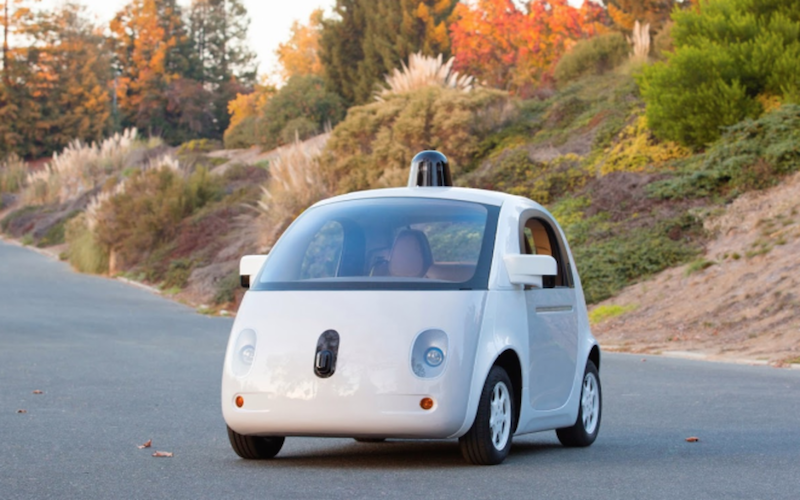
Robohub.org
Robocar news roundup: Google doesn’t hit Delphi but does go to Austin; Vislab sold for $30M

Google’s self driving car. Source: Google
The press were all a-twitter about a report from Reuters that there had been a near miss between Delphi’s test car and one of Google’s, though it was quickly denied that anything happened.
The situation that was described — one car cutting off another — was a very unlikely one for several reasons:
- All these cars are operated by trained safety drivers who are expected to be vigilant and take control at any sign of trouble.
- In particular, special moves like a lane change would get extra vigilance. If something unusual happened (such as two cars going for the same spot) the safety drivers would be watching in advance, tracking what the car was doing, and pulling back if the car’s own displays were not telling them it was going to do the right thing.
The safety drivers are not perfect of course, but an autonomous lane change is a rare event and one that most people are still just testing, so they would be very unlikely to miss that the car was going to cut somebody else off.
Of course, situations will arise when two cars try to change into the same spot at the same time, and robocars will probably be fairly timid in these situations. The most likely situation if two robocars tried to take the same spot would be that both would back off and return to their original lane, and it will probably be that way until being so timid is not a workable strategy.
Robocars won’t be the lane-changing demons that some people (including myself) sometimes are. Many human drivers are constantly trying to find the fastest lane and we weave, only to find that the lane we just moved into has become the slowest. Part of that is our psychology.
Robocars won’t do this as much because their passengers will be occupied doing other things, and in most cases will not be in a super hurry. Those passengers will prefer a stable ride, where they can get work done, to a weaving ride with extra starts and stops. If we’re in a big hurry, we might ask the car to try to work extra hard to make the fastest trip but this will be the exception.
When we do want that, the robocar will actually have a very nice model of just how fast each lane is moving. It won’t be fooled the way we are by seeing some lanes that seem to be faster when in fact neither lane is winning by that much. If they read licence plates to identify cars, they will get excellent appraisals of what’s going on. If one lane is truly faster they will find it. On the other hand, they will be worse at the standard game of chicken needed to change lanes in heavy traffic, where you depend on the car you are moving in front of to slow down. They will know the physics though, and if a lane change is needed, they will warn the passengers of high acceleration and perfectly make a smaller spot than you might be able to make.
In other news, Google has sent two cars to Austin, Texas to expand their testing ground. I don’t have a particular insight on why they selected Austin — but I know that many towns and states regularly contact Google in the hope they might bring some cars to their area, though Texas has no modified laws yet.
Vislab
I’ve written a few times about the work of Vislab in Parma, Italy. They have a focus on doing self-driving with machine vision, and did a famous cross-continent trek from Italy to Shanghai a few years ago, using a lead car to map the way and a following car self-driving, mostly with vision.
This lab was spun out of its university but now has been acquired by Ambarella, a company that specializes in video compression chips, for $30M. One can see why Ambarella would want a computer vision lab — but it seems this might spell the end of their self-driving efforts, unless they are spun out.
Emissions
A new paper is out in Nature Climate Change on the potential for robocars to reduce emissions, in spired by some of my research in this area. Sadly, it’s behind a paywall, but the author will give a talk at Nissan’s lab in Silicon Valley on July 15th at our local self-driving car meetup.
tags: Automotive, Delphi, Google





